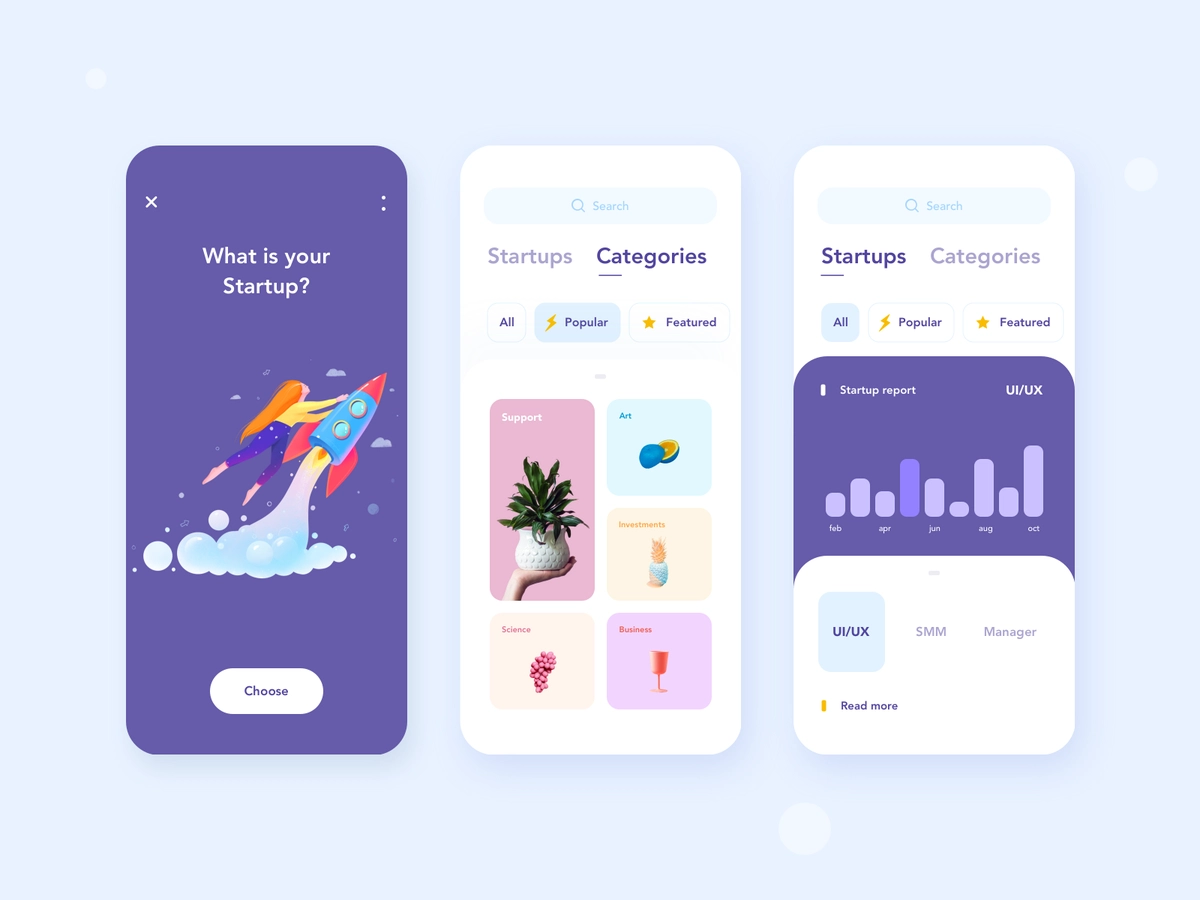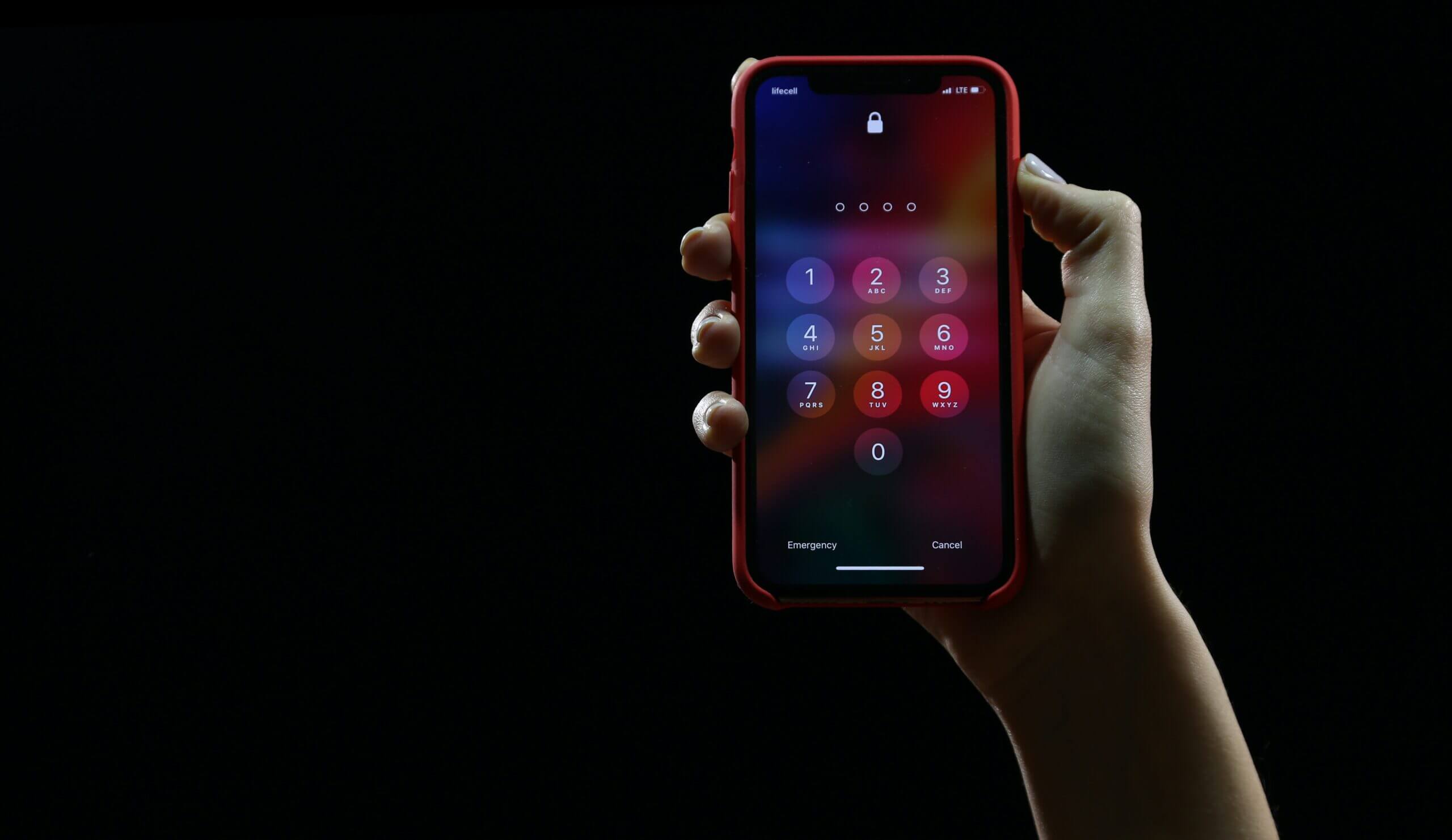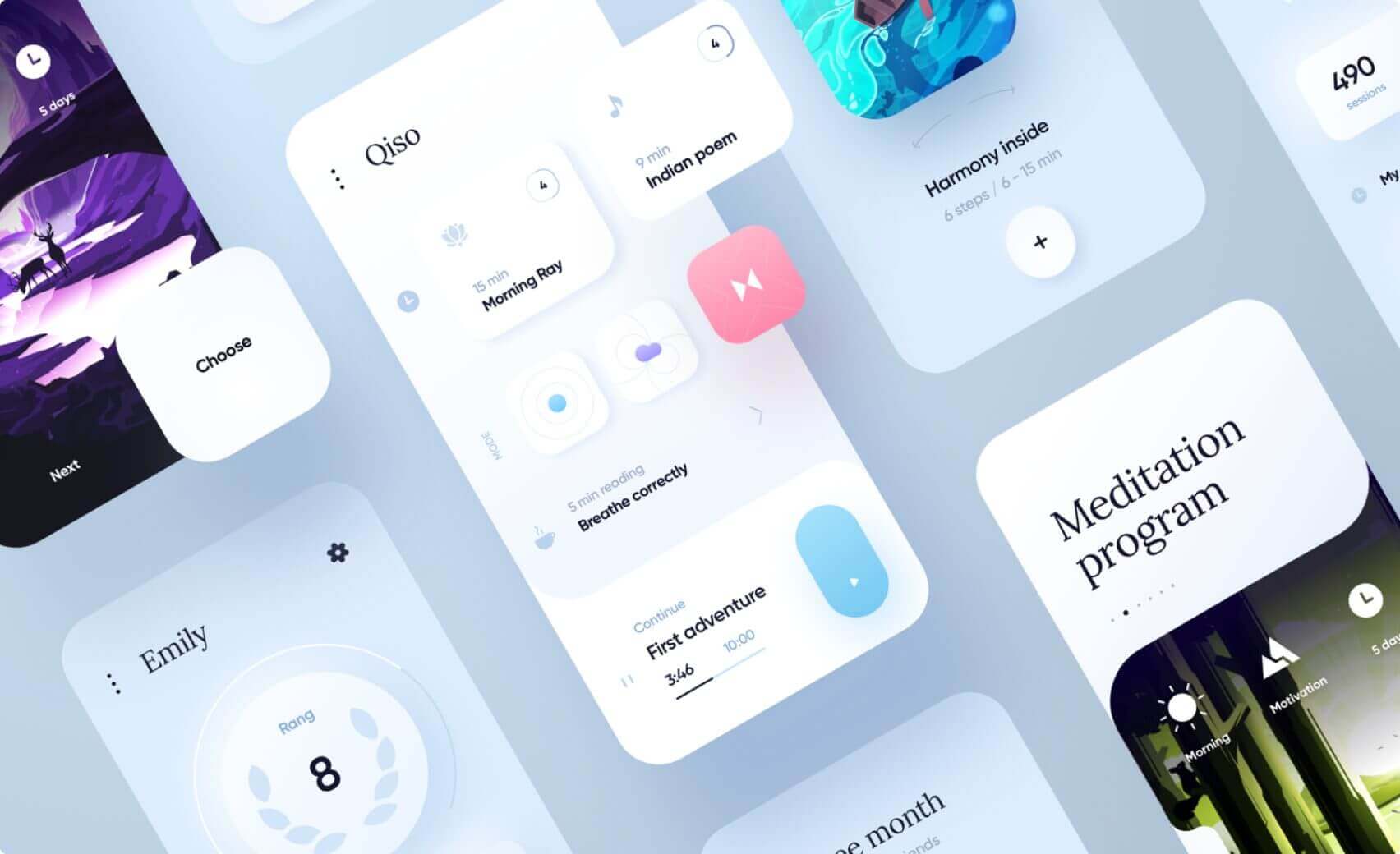Want to launch a startup app? According to the statistics, the worldwide mobile app market was worth $228.98 billion last year. Despite the competition, it’s still possible to succeed. Dive into our guide for startup app development to explore market trends, stages of development, tools, and resources

Startup app development: 4 steps
In this startup app development guide, we will describe the main steps and illustrate them using Fireart’s expertise. With 11+ years of expertise, our team has extensive experience developing successful mobile apps, including the music creation app with over 10 million users.
Step 1: Product discovery
Before building your startup app, you must discover your users’ needs and the market’s demands. This phase lays the groundwork for your app’s success by identifying problems to solve and ensuring your idea aligns with your business goals
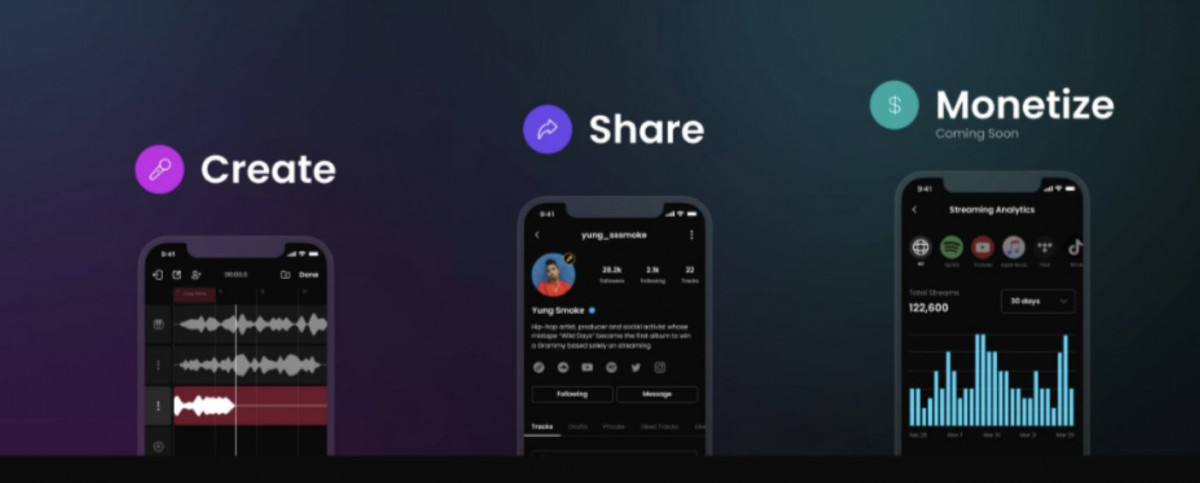
Step 2: UX/UI design
Once you clearly understand your target users and market, it’s time to design your app’s user experience (UX) and user interface (UI). Focus on making your app intuitive and visually appealing to attract and retain users. During startup mobile app development collaboration between developers and designers is critical to creating a seamless and engaging UX design.
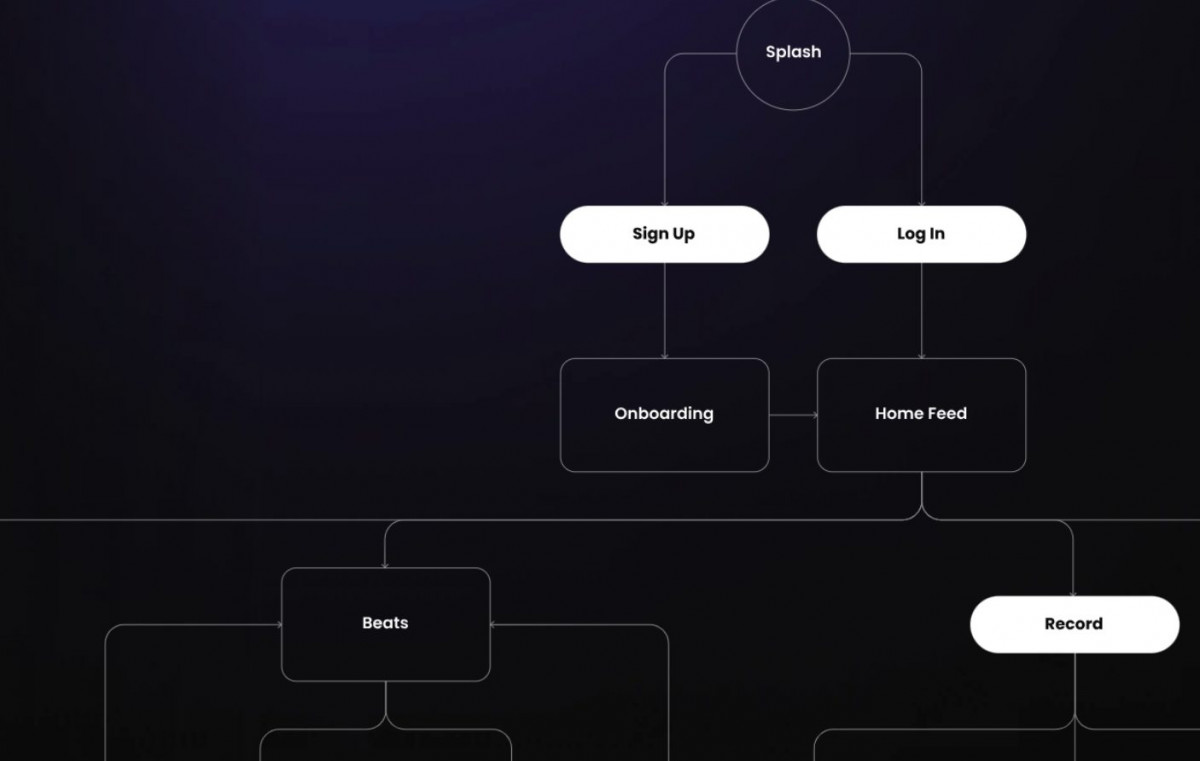
Step 3: Build and test
With your designs in place, it’s time to bring your app to life. Your development team will build the app according to the design specifications. Additionally, you need to test the app during this phase. Before launching, QA specialists will identify and fix the bugs.
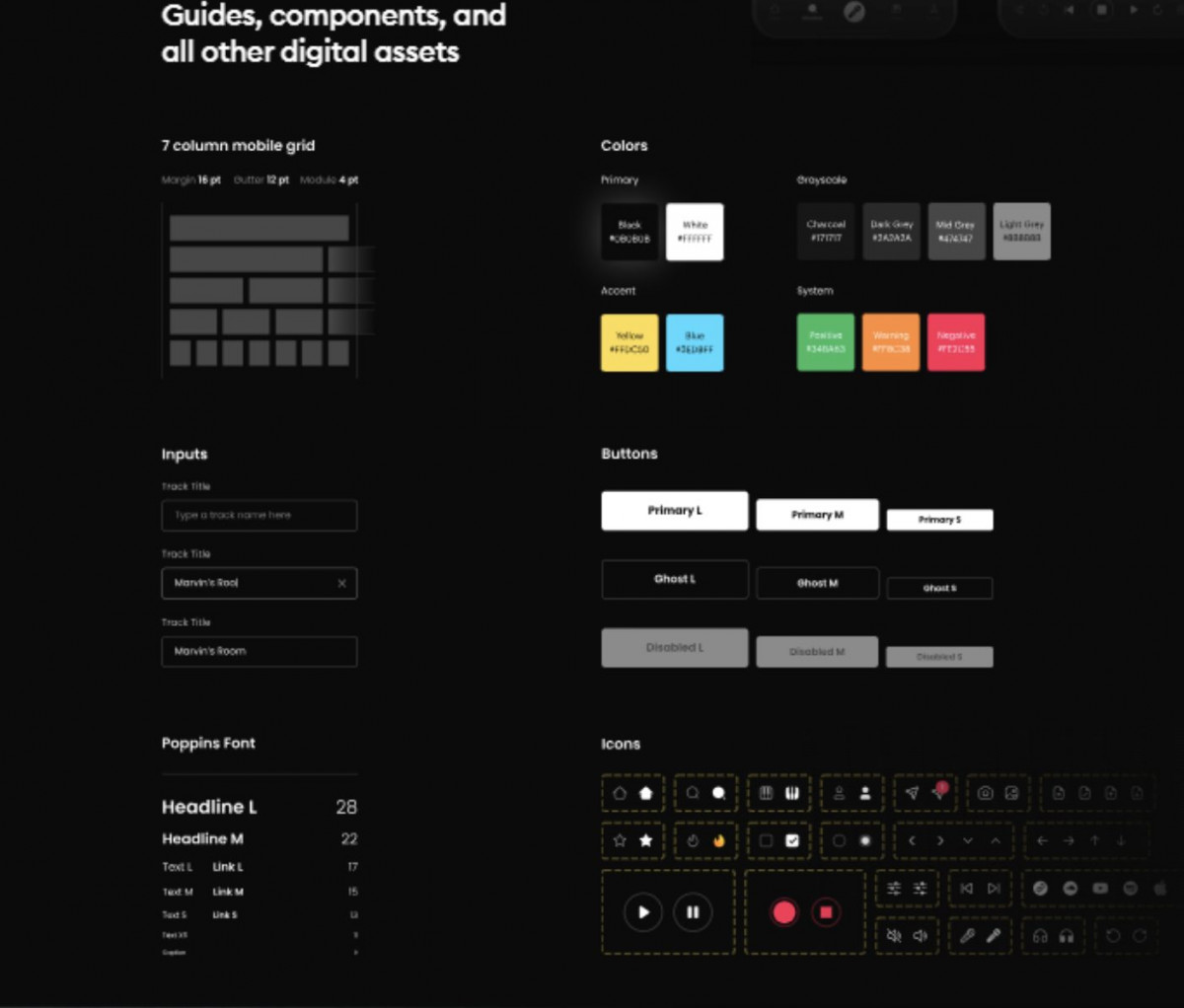
Step 4: App launch and marketing
After months of startup business mobile app development, it is time to launch your app into the world.
Develop a strategic marketing plan to generate excitement and attract users to download your app. Utilize social media, influencer partnerships, and app store optimization techniques to maximize visibility and drive downloads. Continuously monitor and gather user feedback post-launch to make improvements and ensure long-term success.

Choosing the best startup idea
Generating and refining app concepts is a crucial part of app development for startup. Here’s how to identify the best idea for your mobile venture:
1. Spot a problem or opportunity:
- Focus on a specific issue with long-term benefits for users. (For instance, addressing communication challenges between teenagers and their families.)
2. Conduct market research:
- Gauge interest in your solution and assess the competition.
- Ensure your idea stands out in the market.
3. Create a solution scenario:
- Describe how your app resolves the problem and adds value.
- Emphasize uniqueness and a clear value proposition.
4. Validate your concept:
- Confirm its potential profitability and feasibility.
- Check customer interest, financial viability, and legal compliance.
- Use surveys, prototypes, and feedback to refine your idea.
Choosing the right tech stack
A mobile technology stack combines various tools, frameworks, and programming languages to develop, test, and enhance an app. These technologies need to offer a rich feature set, flexibility, ease of learning, and cost-effectiveness.
Choosing the right tech stack can save time and money while enabling your startup to scale efficiently without extensive focus on app refinement and infrastructure management.
Today, mobile app startups have several top tech stacks to consider:
Native app development (Kotlin, Swift, Java, etc.) is ideal for crafting apps tailored to specific devices and operating systems. While it offers high performance and customizable user experiences, it requires skilled developers and entails higher development time and costs. Additionally, it necessitates frequent upgrades.
Hybrid app development (utilizing Ionic and Cordova) is a middle type between native and web app development. It creates universal apps compatible with Android, iOS, Windows, and Mac OS. This approach suits small to mid-sized companies seeking cost-effective solutions, albeit at the expense of some performance and flexibility.
Cross-platform development (employing Xamarin, React Native, Flutter, etc.) proves convenient for targeting multiple platforms. With this stack, developers can maintain a single codebase across various devices and operating systems, facilitating more accessible updates and enhancements without extensive code changes.
How much does startup app development cost?
App development startup cost can vary significantly depending on many factors, including the app’s type (basic or complex), features, platforms, and development approach. While building an in-house team is an obvious option, it’s important to consider the long-term costs associated with this solution.
In-house team costs:
- Hiring skilled developers, designers, and project managers can be expensive, with salaries ranging from $70,000 to $150,000 per year, depending on experience and location.
- In addition to salaries, there are overhead costs such as office space, equipment, software licenses, and employee benefits.
- Building an in-house team requires time and resources for recruitment, onboarding, and training, which can further add to the upfront costs.
Cost of outsourcing:
- Partnering with top startup app development companies offers a cost-effective approach, as you only pay for the services you need without the overhead of maintaining an in-house team.
- These companies often have a pool of experienced developers, designers, and project managers who can quickly ramp up development without requiring lengthy recruitment processes.
- Startup app development companies may offer flexible pricing models, such as fixed-price or hourly rates, allowing you to control costs based on your budget and project requirements.
Rates for developers:
- Developers’ rates can vary depending on their skill level, location, and project complexity.
- On average, junior developers may charge between $25 to $50 per hour, while senior developers can command rates ranging from $75 to $150 per hour.
- Rates may also vary based on the technology stack used for development, with specialized skills such as blockchain or machine learning commanding higher rates.
Partnering with a startup app development company can provide cost savings and efficiencies compared to an in-house team. By outsourcing development, startups can leverage the expertise of seasoned professionals while focusing on core business activities and accelerating time-to-market for their apps.
How to choose the best app development partner?
So, if you have chosen the most cost-efficient variant with an outsourcing partner, you need to consider the main factors:
- Experience and expertise
Choose a partner with similar expertise to your needs. Assess their experience in mobile or startup web app development, including their portfolio, client testimonials, and case studies.
- Technology stack
Ensure the development partner is proficient in the web development technologies and frameworks relevant to your project requirements. They should have expertise in frontend and backend development and experience with databases, APIs, and security protocols.
- Communication and collaboration
Choose a responsive, transparent, and proactive partner. Look for a development team that values collaboration and will work closely with you throughout the project lifecycle.
- Flexibility and scalability
Consider the scalability and flexibility of the development partner’s team and resources. They should be able to scale up or down based on your project needs and timelines. Additionally, flexibility in project management methodologies and pricing models is beneficial for adapting to changing requirements.
- Client-centric approach
Select a development partner who prioritizes client satisfaction and is committed to delivering value-added solutions tailored to your specific business needs. They should be receptive to feedback, proactive in addressing issues, and dedicated to meeting project deadlines and milestones.
- Budget and timeline
Evaluate the development partner’s pricing structure and project timelines to ensure they comply with the budget and schedule constraints. While cost is an essential factor, prioritize quality and reliability over price alone to avoid potential delays or compromises in the final product.
Summary
In this article, we’ve delved into the main steps for startup app development, covering everything from ideation to launch and beyond. We’ve explored product discovery, UX/UI design, build and test phases, and app launch and marketing strategies to equip startups with the knowledge needed for success.
Additionally, we’ve emphasized the importance of selecting the right technology stack, highlighting the benefits of outsourcing development over in-house approaches. Choosing a reliable development partner like Fireart Studio can streamline the development process and ensure access to a skilled team of experts while minimizing costs and risks
With over a decade of experience, Fireart Studio is ready to support startups at every stage of their app development, from concept to launch. Whether it’s your first app venture or you want to enhance your existing digital products, we offer the expertise and guidance needed to drive success in the competitive app market. Contact us now and we will combine creativity, technology, and strategy into your successful app.
FAQ
What is startup app development?
Startup app development refers to creating a mobile or web application from scratch to meet a startup business’s specific needs and goals. It involves various stages to bring innovative digital solutions to market, including ideation, design, development, testing, and launch.
Why is app development important for startups?
App development is crucial for startups as it enables them to reach a wider audience, enhance customer engagement, and streamline business operations. A well-designed and user-friendly app can drive brand awareness, customer acquisition, and revenue growth, contributing to the startup’s overall success.
What are the essential steps in startup app development?
The essential steps in startup app development include:
- Product discovery and ideation
- UX/UI design
- Build and test phases
- App launch and marketing strategies
Is it better to outsource app development or build an in-house team?
The decision to outsource app development or build with in-house team depends on various factors, including budget, timeline, expertise, and project requirements. Outsourcing app development to a reputable agency like Fireart Studio can offer several advantages, including access to a skilled team of experts, cost-effectiveness, scalability, and faster time-to-market.
How long does it take to develop a startup app?
The time it takes to develop a startup app varies depending on complexity, features, platform, and development approach. It can take a few months to a year or more to complete the app development process, including the design, development, testing, and launch phases.
What are the main factors for choosing an app development partner?
When choosing an app development partner, it’s important to remember factors such as experience, portfolio, communication, expertise, scalability, flexibility, quality assurance, and budget.


